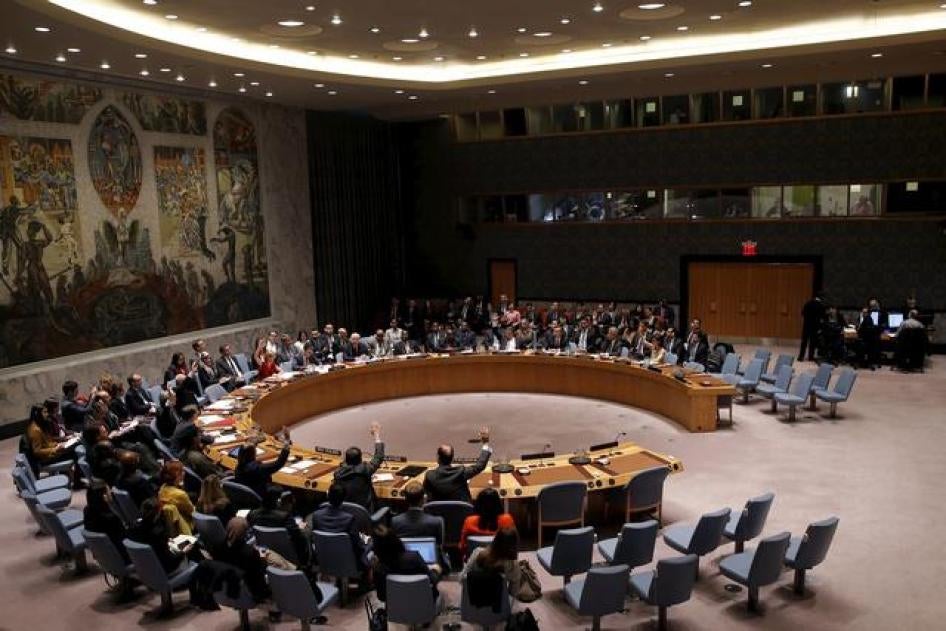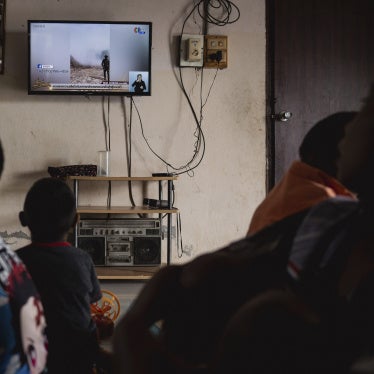On June 12, the United Nations Security Council met to debate North Korea’s human rights situation. It has been 10 years since a historic U.N. Commission of Inquiry on North Korea documented an extensive record of crimes against humanity and other violations and recommended that the Security Council refer North Korea to the International Criminal Court.
At the June 12 meeting, the Security Council specifically focused on connections between human rights violations, forced labor, and other issues that have enabled and support North Korea’s nuclear weapons program.
Russia and China objected to the meeting, and Russia demanded a procedural vote on whether it should proceed. Of the 15 council members, a dozen voted in favor, Russia and China voted against, while Mozambique abstained. The meeting proceeded despite Russian and Chinese opposition as there are no vetoes in procedural votes.
The two permanent Security Council members have long contended that “internal” human rights issues in North Korea do not fall under the Security Council’s general mandate to oversee international peace and security.
Such objections are ludicrous in a U.N. body that regularly debates human rights crises. The issue of human rights in North Korea was formally placed on the council’s agenda 10 years ago, with the approval of 11 council members, as a stand-alone item independent of its existing attention to weapons non-proliferation issues. Council members have also raised human rights issues – and their connection to North Korea’s weapons programs – in over 20 proliferation-related meetings on North Korea since 2014. The most recent resolution updating proliferation sanctions on North Korea in 2017, which China and Russia supported, included language on human rights abuses.
North Korea’s abysmal human rights situation isn’t internal: it is spilling over the country’s borders. The North Korean nuclear weapons program is enabled by repression and forced labor inside the country. Thousands of North Koreans in the last decade have risked torture and death to flee to South Korea or China.
Ten years of “debating” this issue has gone nowhere, and intensifying triangular tensions between the U.S., Russia, and China have only cemented the council’s deadlock. On March 28, Russia vetoed a resolution at the Security Council to renew the mandate of the Panel of Experts who previously monitored compliance of sanctions on North Korea. And a contentious May 31 debate on North Korea’s nuclear weapons program, held four days after North Korea launched a reconnaissance satellite, demonstrated that the Security Council can no longer reach consensus even on issues on which it long was united – North Korea’s nuclear and ballistic weapons programs.
The deadlock, however, has created an opportunity to forge a new approach.
The U.N. General Assembly continues to follow North Korea’s horrific human rights situation and annually passes a resolution condemning it. It was the General Assembly that transmitted the 2014 Commission of Inquiry report to the Security Council and recommended that it act on the commission’s findings. With the Security Council at an impasse, the General Assembly should address the escalating human rights and humanitarian crisis by creating a new body to monitor and report on human rights and proliferation-related issues in North Korea.
The General Assembly should create a new mechanism, staffed with experts in international human rights and humanitarian issues, weapons proliferation, and sanctions issues, tasked with reporting on both human rights violations and weapons development issues, and investigating the nexus between the two. Key issues to be investigated would include forced labor by the military, reports of radioactive contamination of workers, and diversion of essential resources at the expense of the civilian population.
A strong standing body to collect and preserve evidence and information on human rights abuses, and links to weapons proliferation, would also contribute to future accountability for systemic abuses. It could provide comprehensive reporting on how sanctions impact humanitarian issues, as well as providing technical assistance to governments seeking guidance on sanctions monitoring, as the previous Panel of Experts did.
Inaction can no longer be considered an option. With the Security Council effectively deadlocked on North Korea, the General Assembly needs to step up.










